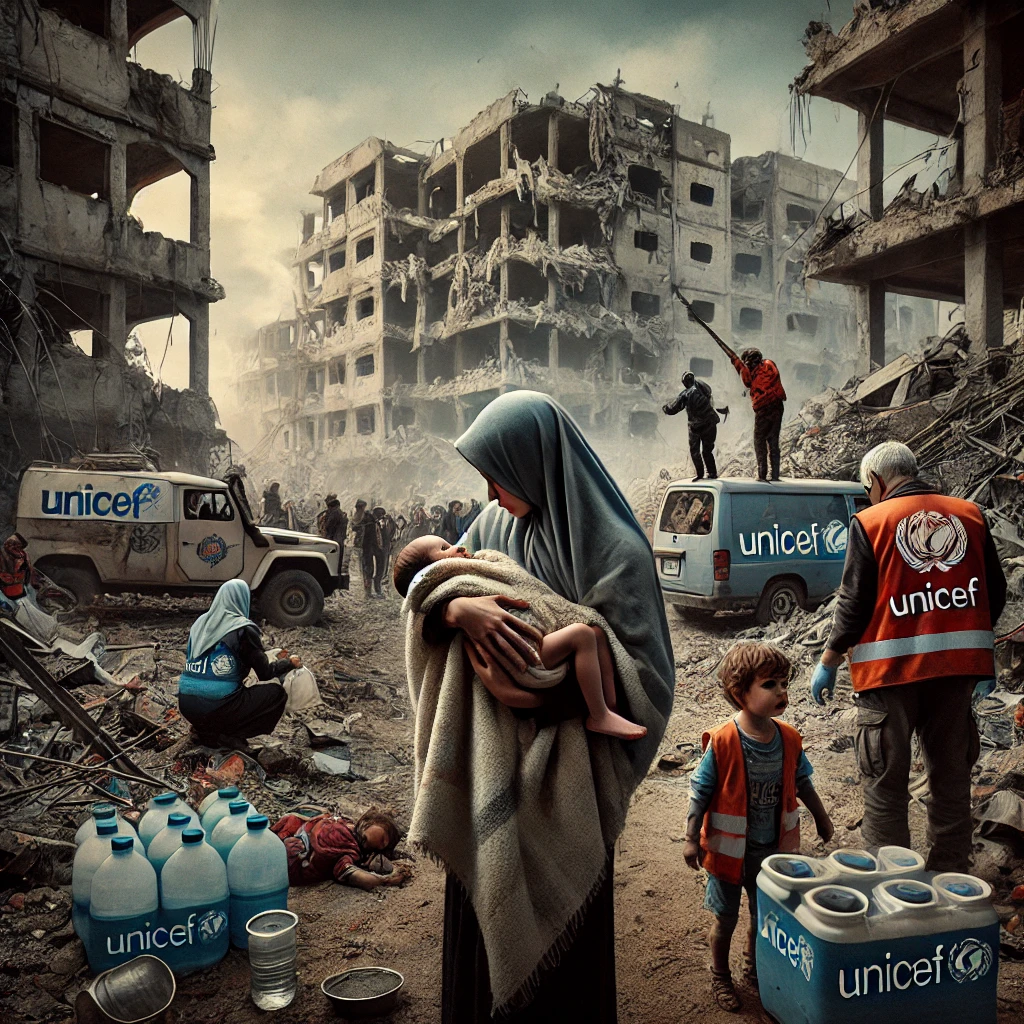Urgent Humanitarian Crisis in Gaza: Millions Suffer Amid Continued Blockade
In the wake of this tragedy, bakeries that had been supported by the World Food Programme (WFP) during the ceasefire have had to shut down.

For over a month, the people of Gaza have been enduring one of the most dire humanitarian crises in recent memory. More than 2.1 million individuals are trapped in an increasingly dangerous situation, cut off from essential supplies due to the prolonged siege and ongoing military operations. While Gaza's civilians are bombed, starved, and left with limited means to survive, vital humanitarian aid is being obstructed at crossing points, with food, medicine, fuel, and critical medical equipment accumulating but unable to reach those in need.
The toll on Gaza’s children has been catastrophic. Over 1,000 children have been reported killed or injured within the first week after the collapse of a temporary ceasefire, marking the highest one-week child death toll in Gaza in the past year. These heartbreaking losses, compounded by the destruction of homes, schools, and hospitals, have shattered families and left the next generation with deep scars.
In the wake of this tragedy, bakeries that had been supported by the World Food Programme (WFP) during the ceasefire have had to shut down. The reason: severe shortages of essential supplies, such as flour and cooking gas. This has led to an even greater food crisis, further exacerbating the suffering of the population. Families, already struggling to make ends meet, now face a future without even basic sustenance.
The healthcare system, once already fragile, is now overwhelmed by the sheer scale of trauma and illness. Hospitals are overwhelmed with casualties from the ongoing bombings, and the lack of essential medical supplies is pushing the system to the brink of collapse. Trauma and surgical supplies are dwindling rapidly, threatening to undo the hard-won progress made during a brief ceasefire. In some areas, entire hospitals have been forced to close their doors because they simply cannot function with the current shortage of resources.
The most recent ceasefire allowed for the delivery of vital life-saving supplies to Gaza. In just 60 days, humanitarian organizations managed to deliver more aid to nearly every part of Gaza than had been possible in the previous 470 days of war, obstruction, and looting. However, despite these gains, the overall situation remains dire. Assertions that there is enough food to feed the population are far from accurate. Commodities are running extremely low, and the reality on the ground is that many people are still unable to access what little aid is available.
While the international community has made statements of concern, little action has been taken to alleviate the ongoing suffering. Israel’s continued blockade, now in its second month, has left thousands of families with no escape. New Israeli displacement orders have forced hundreds of thousands of Palestinians to flee their homes yet again, but with no safe place to go. Civilians in Gaza are caught in a vicious cycle of violence, displacement, and deprivation, with no end in sight.
The death toll among humanitarian workers has also been devastating. At least 408 aid workers, including over 280 from the United Nations Relief and Works Agency (UNRWA), have lost their lives since the conflict escalated in October 2023. These brave individuals have been on the front lines, risking their lives to help the most vulnerable, but now, they too are falling victim to the violence.
The situation in Gaza demands urgent action from world leaders. The principles of international humanitarian law must be upheld, ensuring that aid reaches those in need, that civilians are protected, and that basic human rights are respected. The time for action is now. The international community must act with the urgency and resolve required to prevent further suffering and loss of life.
- READ MORE ON:
- Gaza
- World Food Programme
- United Nations Relief and Works Agency










